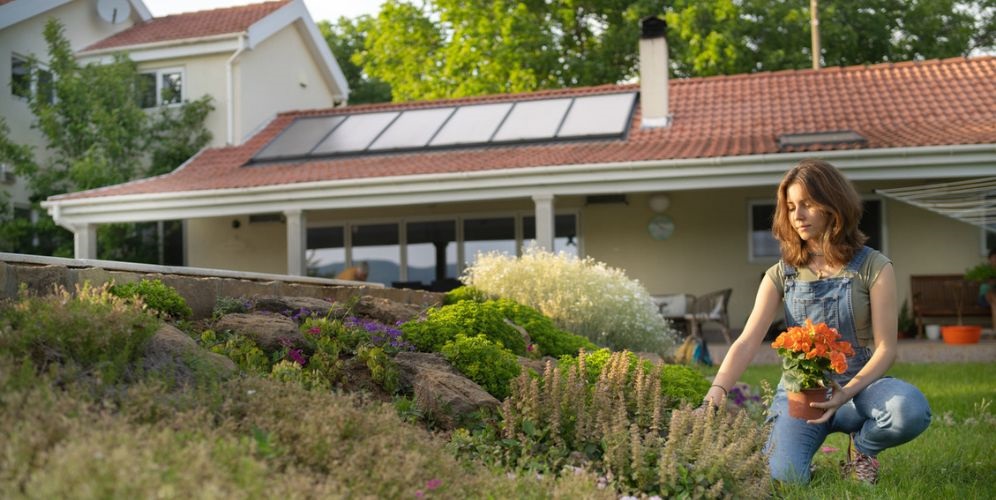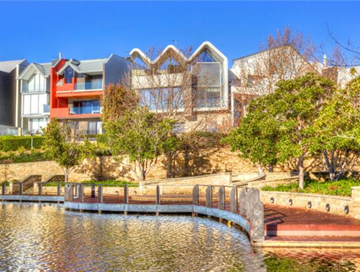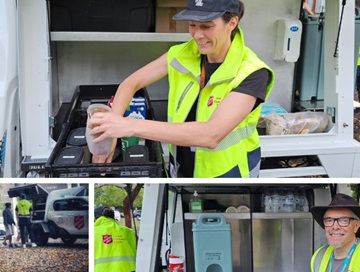Set yourself up for a sustainable (and cooler) summer
14 December 2023"REIWA training partners Green Gurus say it is possible to boost your current home’s sustainability and offer readers retrofitting advice."

We’re heading for a long, hot summer according to the experts, and that means cranking up the air conditioning - if you have it - and higher electricity bills.
But it doesn’t have to be that way. Sustainable features can make your home more comfortable in the hot weather, particularly if you don’t have air conditioning, and can also save you money.
If you’re building or renovating you can explore various sustainable features like optimising north/south orientation, enhancing your ventilation and increasing your NatHERS Energy Ratings by improving the overall thermal performance of your home. But what can you do if you have an established home?
REIWA training partners Green Gurus say it is possible to boost your current home’s sustainability and offered the following retrofitting advice:
Choose appropriate insulation levels for your roof and walls and block up those gaps
It can't be under estimated just how effective draught proofing is to keeping heat energy out of the house. Plug up those gaps first.
Insulation is your next best step and can make a huge difference to your home’s temperature. Check your current insulation and make sure it is appropriate for your residence. Insulation that was in place when you bought it may be outdated now. In Perth, a minimum total R-Value R4.1 is recommended for a roof/ceiling (depending on roof colour), plus a minimum of R2.8 for external walls.
Wall insulation can be retrofitted for existing dwellings.
Add solar
You can save money and also power your air conditioning and fans via solar power. You should choose an appropriate Solar PV system and size from a retailer who is registered with the Clean Energy Council and who works with a certified installer to ensure quality control and warranties.
Solar can also power your pool pump.
Go fully electric
After installing solar, your existing home can easily, and cost-effectively, be fully electric with the choice of efficient appliances charged by renewable energy.
This means you can consider installing an electric hot-water system that suits the size of the home. A Heat Pump water heater with a Co-efficient of Performance (COP) of 4.0 and lower than 10 GWP Refrigerants is considered the most effective and affordable option today for most homes.
Then take control of your energy use through smart metering, automation, and monitoring. You can’t manage and optimise your energy use if you don’t measure it.
Consider double glazing or tinting
Double glazing significantly reduces the heat loss and gain from your home. While installing double glazed windows or doors is something to consider when building or renovating, you can also retrofit existing windows. Tinting windows that receive direct sunlight is another option to prevent your home from heating up.
Go native with your garden
You can choose water wise, native gardens that are strategically designed to effectively shade your building.
This includes:
- Evergreen and deciduous vegetation that can be positioned to shade your home in summer and allow full solar access in winter.
- Native trees and vegetation that will require less water to maintain them and support local native birds and bees.
- Drip reticulation systems to allow water to be delivered directly to plants through holes or outlets in the piping. Pipes in the reticulation system are buried to ensure that water is used effectively and efficiently, with little to no waste.
- Taking advantage of free native plants or trees through your local council’s Sustainable Verge Program which aims to enhance street verges and build up tree canopy cover to reduce the heat island effect.



.tmb-rcarousel.jpg?sfvrsn=b4b9111_1)



.tmb-rcarousel.jpg?sfvrsn=d38b03f0_1)

